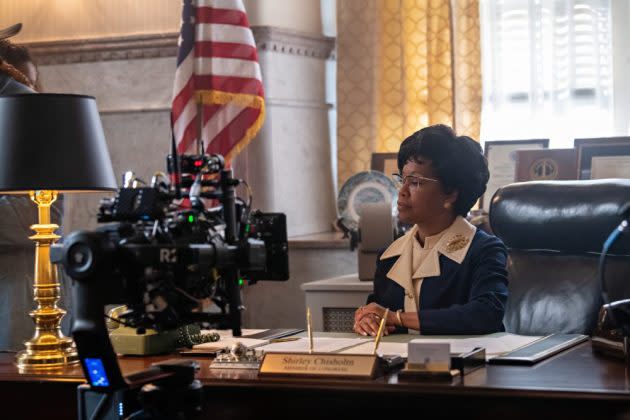‘Shirley’: How Composer Tamar-kali’s Score Reflects a Love of Country, Determination and Ambition (EXCLUSIVE)

As a proud Brooklynite, composer Tamar-kali will often walk around her neighborhood and see a mural of America’s first Black congresswoman Shirley Chisholm. Other times, she’ll take a walk around the Shirley Chisholm State Park and be reminded of an incredible legacy.
Chisholm’s story is the subject of “Shirley,” a new film produced by and starring Regina King, directed by John Ridley and coming to Netflix on March 22. It is one that Tamar-kali is proud to tell through music. Her score was a suite of themes generated around Chisholm’s relationships with underpinnings of determination, ambition and, most importantly, her love of country. “She was a disruptor,” Tamar-kali says.
More from Variety
The film follows Chisholm in the late ’60s into the early ‘70s when she goes on the campaign trail, seeking the presidential nomination. “I hadn’t used a wider palette compared to my previous films ‘John Lewis: Good Trouble’ or ‘Joan Didion’s The Last Thing He Wanted.’ There’s french horn and I was able to use more percussion to hold the backdrop of the campaign trail,” she explains.
Tamar-kali incorporated Brooklyn’s multicultural identity through music, specifically the Afro-diaspora and using trap drums and congas. “I was able to bring in different aspects of that reality be it pace and rhythm and give the music.” Those beats also lend themselves to a propulsion as Chisholm progresses on the trail.
In one key scene, Chisholm goes to the hospital to visit George Wallace (W. Earl Brown) after he’s been shot. “That act alone for some, was very incendiary. It sat very firmly in her ideology. As someone who had a faith-based practice and belief in kindness in loving your neighbor and your enemy, she was not weak, she spoke truth to power. There was no bitterness there,” says Tamar-kali.
With that in mind, the music at that point was a theme, “The Hospital Visit,” which spoke to Chisholm’s humanity and tenderness. Tamar-kali notes she was mindful of the performances. “I didn’t want to step on toes, so the cue carried enough weight to bring you into the world of the scene, and then stay out of the way.”
Best of Variety
Sign up for Variety’s Newsletter. For the latest news, follow us on Facebook, Twitter, and Instagram.

